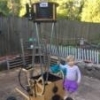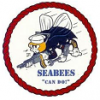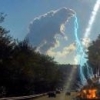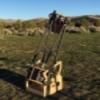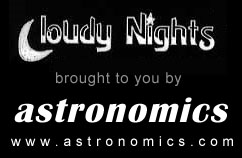We see people posting on this forum asking for help in getting their children started in astronomy. What telescope should they buy? What books should they get? Where can they learn about astronomy. They don’t want to spend too much because the kids may lose interest quickly. So we advise them as best we can.
I was having a private message exchange with someone on this topic and what I have posted below evolved out of that discussion so I share it here. But you may have a different approach and I would love to hear it. We could build a resource here that could help parents, grandparents, aunts and uncles and friends who want to get the kids involved in astronomy.
Offered for your consideration
GETTING CHILDREN INVOLVED IN ASTRONOMY
Children have short attention spans are easily distracted and can move from interest to interest quickly. So many introductory telescopes are given as gifts only to be put in the back of the closet after a week or two. This plan is intended to avoid that.
There is a base assumption that an adult will be involved, at least in the beginning, and we want to enable the children to share this experience with friends or siblings. Sitting alone, studying charts and books and observing the Orion Nebulae may sound good to us but probably not to our children, nieces and nephews or grandchildren.
I have set a starting budget of $200 or less. This is focused on 6 year olds to 16 year olds but applies equally to getting older kids and adults engaged. For many, hearing they need to spend a lot of money to get started in astronomy can be a turn off before they even take a look. You can substitute other products where you like and you can do this in phases so that it doesn't all have to happen at once. Some for Christmas and some for the next birthday works too.
The other part of the plan is to provide introductory tools that are not exclusively used in astronomy. Having these address more than astronomy provides a way for the kids to get to know how to use telescopes and binoculars in ways that are not exclusive to astronomy. This also addresses the concern that if we spend a bunch of money and they are not interested in astronomy the money has been wasted.
Let's see how this strikes you.
Binoculars - Binoculars are a great place to start. They are fun and intuitive, even for young children. They can be used for astronomy, bird watching, sports and all sorts of things. Getting the child engaged with the tool is just as important as getting them engaged with the subject. I have listed 3 different binoculars that are low cost but of a quality that will enable, not frustrate the kids. The intent is to match the size of thebinoculars to the size and ability of the child. Clearly a 12 year old canhandle larger binoculars than a 6 year old. First binoculars don't have to be expensive. My 10X50s cost $20 and I use them all the time.
Celestron 7X35 - $35 - Perhaps 6-10 year old
https://www.astronom...ars_p19695.aspx
Celestron 8X40 - $35 - Perhaps 8 to 12 year old
https://www.astronom...ars_p19696.aspx
Celestron 10X50 - $35 - Perhaps 10 years and older
https://www.astronom...ism_p19993.aspx
So, one pair of binoculars well matched to the child. I will provide activities below to support their use.
Small telescope - I have selected a travel scope rather than a dedicated astronomy scope. This will encourage both daytime and night time use. I have selected the 70 mm Celestron Travel Scope but there are many other offerings that are suitable for daytime and night time use. It is low cost, flexible, compact and portable. This will provide wide FOV to provide context, but has enough aperture to see the brighter DSOs, like the Pleiades or the Orion Nebulae, and high enough magnification for planets and the moon. Many of the things you might look at in binoculars can be seen here but at higher magnification. In addition it is something that could be handled by a child as young as 8 with a minimal amount of physical help and a 12 year old should be able to easily handle this on their own. It is easy to take on trips for family fun and stores away in its own backpack.
Celestron 70 mm travel scope - $85- Included eyepieces offer 20X and 40X with wide field view. A step up from binoculars.
https://www.astronom...rm=travel scope
https://www.youtube....h?v=TCfzOr0XVx8
https://www.youtube....h?v=aGz0iDUoxMI
Barlow - Optionally add a low cost 3X barlow lens for higher magnification. I have this one. Now you have 60 and 120X with the standard eyepieces which should be well within the capability of the 70 mm aperture for the moon and planets.
http://www.amazon.co...=3x barlow lens
Laser pointer for adult use only - This can help you point out things like the Orion Nebulae or the Pleiades to help the kids find them in the sky. I use it when I am doing group presentations or when I am introducing friends to astronomy. You can also use this, strapped onto the scope, to help you target the scope at a visible target. They are extremely helpful but I would not hand them to a child.
http://www.ebay.com/...54AAOSwZd1VZTLu
Observing with friends, kids, visitors - The Wow factor of the ZOOM -
completely optional - read the report - $75
http://www.cloudynig...or-of-the-zoom/
https://www.astronom...iece_p8985.aspx
Group activity - Now you have two items, binocular and scope, which can be shared with parent and child, brother and sister, or allow multiple children to participate without the "waiting on line" that kids hate. You can have a star party and get their friends involved. You can invite them to look at the Pleiades with the binoculars. Cool! Now look at the Pleiades through the scope. Multiple adults or children can be involved simultaneously. Use the binocular like a spotter for the telescope. And the binocular can probably go in the travel scope pack for travel and storage.
BOOK AND COMPUTER SUPPORT FOR ASTRONOMY
Turn Left at Orion - $19 just one of may possible first books
http://www.amazon.co... at ori,aps,137
Today's kids are very computer savvy so for their computer we have:
http://www.stellarium.org/ Probably the most useful tool. Creates a planetarium in the computer that shows you the night sky as you would see it at your location today, right now, at this hour. You can look at Stellarium then walk out side and see the same thing. I use it almost everyday. Put it on your laptop and compare the screen to the sky.
www.tonightssky.com - You use this to develop a target list.
Here is a post about how to Tonight's Sky to create target lists that are appropriate to your interests and your equipment.
http://www.cloudynig...ights-sky-free/
SkEye - This is for a smart phone or tablet. Available on Android and I presume Apple as well. Point the phone at the sky and it will show you the stars that are there, give you their names and things about them. Really cool. They will LOVE this.
EXPAND THE VALUE OF THE BINOCULARS AND THE TELESCOPE - Birds
Both the binoculars and the travel scope can be used for daytime activities so they are not restricted to astronomy as a more dedicated astronomy telescope might be. They can use them for viewing birds and boats and sports. They are light and travel easily on vacations. If they never really get involved in astronomy the binoculars and the travel scope can still be supportive of other things that will interest them as they grow. And perhaps birds or the like will be of more interest at first. This will help them gain experience with binoculars and a telescope that can be leveraged later to introduce astronomy.
So, if you want to expand the appeal let's add bird watching to the starter package. Most kids would LOVE that. They can watch the birds in the yard, go into the woods or just walk the neighborhood and admire the birds. Set-up or build a bird house or a bird feeding stand in the yard. Use the spotting scope and the binoculars to watch the birds.
When my girls where young they were fascinated by birds. We had a book and a chart by the door and a bird feeder in the yard and they learned the names, the calls and such. Keep the binoculars available or keep the travel scope set up and directed toward a bird house or a feeder and they will get to know these tools as they learn about birds. Watch for the eggs to hatch.
I think we had this poster on the wall by the back door.
http://www.amazon.co...rds=bird poster
This might be good books to consider: Backyard Birds (Field Guides for Young Naturalists)
http://www.amazon.co...ng for children
Backyard Bird Watching for Kids
http://www.amazon.co...ng for children
SUMMARY
Now you have a daytime use for the gifts and a night time use for the gifts. Your child might love astronomy right away. Or they may love birds. Or maybe they will enjoy binoculars for sports. Or the travel scope for looking at boats and ships on the lake or in the harbor. No matter what gets their attention first you are getting them engaged in a new activity and they are becoming familiar with the use of these observation tools.
What did we spend?
Binoculars $35
Travel Scope - $85
Barlow - $12
Laser pointer - $5
Book - $19
$156 - well under our $200 budget
Add something about birds - maybe another $30 so perhaps $186 gets you there and you are now giving them two hobbies and a path to others.
Later their use can be expanded and your initial investment leveraged to keep them engaged as they grow. And of course there are local clubs or school activities that can increase their engagement. If the sky does not interest them today, that's OK. Perhaps it will interest them tomorrow Offered for your consideration. Spend more time with children if you want to remain young. ![]()
Edited by aeajr, 12 December 2015 - 12:35 PM.




